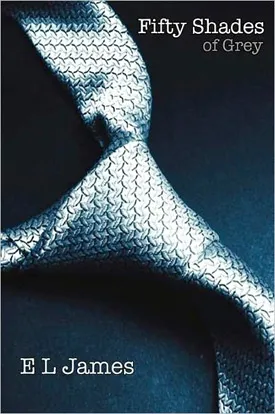Table of Contents
Professor John Donohue’s office sits midway down a corridor on the second floor of the luxe William H. Neukom Building, part of Stanford Law School. I visit twice, on a Monday and a Friday. On both occasions it is more silent than a library, reminiscent of a cross between a modern art museum and a corporate law office.
In contrast to this clean, sterile space is Donohue’s office itself. Memos, notes, and books litter the floor, the bookshelves, and the desk. When I interview him I sit in a chair several feet removed from the desk, as there is no space on the floor for me to move closer. I perch my computer on my lap, as the desk is piled high with papers.
I am here to ask him about his thoughts on gun control. He was recently approached by CNN to write another opinions piece for them on the subject. Donohue has focused on gun control issues for the past decade.
Not Enough Information
He believes there is an inadequate amount of research on the effects of gun control measures. “We know less than is ideal,” he tells me, and so “it is hard to know exactly what policies should be crafted.” His CNN piece has little evidence that explores the ramifications of gun control measures. In our interview he is hardly more forthcoming with facts or statistics. He does inform me that the United States has a homicide rate four or five times that of other rich countries. But, as Donohue himself admits, this is due to multiple factors, especially the War on Drugs.
In the city of Chicago (with, notably, very strict gun control measures compared to the rest of the United States), 80% of homicides in 2011 were due to gang-related violence. In most jurisdictions, according to the FBI’s National Gang Threat Assessment, about 48 percent of violent crime is due to gangs. In some jurisdictions, this percentage rises to 90. Donohue does not mention any of this data, nor does he seem especially concerned with limiting gangs and gang-related violence. He does not mention the word “gang” once in our nearly forty-minute conversation.
The Australia Debate
Donohue cites Australia’s policies as ideal, noting that the country has eliminated mass shootings since 1996, when it implemented a series of highly restrictive gun laws. However, mass shootings account for a minute percentage of gun homicides. Don Weatherburn, head of the New South Wales Bureau of Crime Statistics and Research, found that the overall rate of violence in Australia was not affected by the 1996 laws, explaining, “The fact is, however, that the introduction of those laws did not result in any acceleration of the downward trend in gun homicide. They may have reduced the risk of mass shootings but we cannot be sure because no one has done the rigorous statistical work required to verify this possibility.” Researchers writing in the British Journal of Criminology similarly found no measurable impact of the Australian gun control measures on homicide rates.
Even the eradication of mass shootings is likely not due to the 1996 slate of laws: a study by researchers Dr. Jeanine Baker and Dr. Samara McPhedran noted that while both New Zealand and Australia experienced mass shootings between 1980 and 1996, neither country has experienced one since. New Zealand, unlike Australia, has continued to allow semi-automatic longarms.
Do Concealed Carry Laws Result in Increased Crime?
Conceding that making international comparisons is difficult, Donohue suggests comparing the efficacy of gun control measures on a state level. He thinks that states that pass concealed carry laws may fare worse than other states, explaining, “to the extent that we can come up with an answer, it seems as though they make things worse rather than better, and so that at least is giving some evidence within the US context that guns are part of the problem rather than part of the solution.”
Donohue originally became interested in gun control issues when, together with Professor Ian Ayres of Yale Law School, he wrote a critique of economist John Lott’s book More Guns, Less Crime. Lott, having performed a detailed statistical analysis, argues that concealed carry laws are correlated with a significant decrease in crime. According to the Chronicle of Higher Education, six subsequent scholarly studies have confirmed Lott’s findings, while four others disagree.
On the basis of this evidence, Donohue supports restricting gun access, though on the other hand, he admits, “No scholars now claim that legalizing concealed weapons causes a major increase in crime.”
A Violent Black Market
I ask about the possible ramifications of gun control measures. Donohue says “there is no doubt” that a black market would develop among criminals. Over the course of our interview, he also explains, “it really does tend to breed violence when you have these large illegal markets.” However, he thinks that the increased price of guns in a black market would mean people with mental health problems who “typically… don’t have as much discretionary cash” would have more trouble accessing guns. Apparently this speculative supposition — that fewer people with mental health problems would purchase guns in a black market — outweighs the likely possibility of such a black market “breed[ing] violence.”
However, even if fewer mentally ill people had the legal capacity to purchase guns there would be “little impact on everyday firearm-related killings,” says the New York Times. Indeed, according to an American Journal of Psychiatry study, people with mental illness are responsible for only about four percent of violence in the United States. That percentage includes suicides, which make up a far greater portion of firearm-related death than homicides. As the director of the National Institute of Mental Health says, “mental illness contributes very little to the overall rate of violence in the community.”
Nevertheless, Donohue believes, “you probably do get some benefit even with an illegal market if you can cut down the availability,” as, according to him, fewer people with mental illnesses would be able to afford guns in a black market.
An Invasion of Privacy
We move on to the implications of universal background checks, a policy Donohue supports. I ask him multiple times what he might say to people concerned about privacy. He finally answers, “I’m not fully certain on what the privacy issue is.”
Donohue would like to see the universal background checks prevent gun access among certain classes of people, notably those with a history of drug, alcohol, and mental health problems, and as well as those with visual impairments. He does not explain how this past history of drug or alcohol problems would be evaluated. Nor does he define “mental health issues”, leaving me to wonder if someone who suffers from a mild case of seasonal affective disorder and with no history of violence would be prevented from owning a gun. Donohue sees no issues with a person being required to provide such personal information, asking what the “disadvantage” is in going through an “instant” universal background check system.
Donohue writes in his CNN piece that Iowa’s decision to offer concealed carry permits to the legally blind is “nonsense.” I ask at what point of visual impairment he would want people to be allowed such permits. He is unsure. He also seems to think that objecting to Iowa’s decision is not prejudicial, pointing out that there is a vision test for those who wish to drive. Driving, however, is not a constitutional right. The right to bear arms is.
But Donohue takes issue with this interpretation of the 2nd Amendment, even though the Supreme Court upheld the individuals’ right to own a gun in the 2008 District of Columbia v. Heller ruling. Calling the Heller decision a “mistake,” Donohue prefers to think of the Second Amendment as “a right for the state to have militias rather than a private, individual right to keep and bear arms.”
Inflammatory Rhetoric
Although Donohue says he views the rhetoric of the pro-gun crowd as being inflammatory and dangerous, when pressed for specific examples he provides just one. It is a quote by Wayne LaPierre, CEO and Executive Vice President of the National Rifle Association of America (NRA), comparing the dress of federal agents to that of Nazis, for which LaPierre shortly apologized. He made the statement in 1995.
Seemingly in contrast to Donohue’s distaste for provocative, exaggerated speech, his CNN article is entitled “Gun lunacy rides high in America.” In it, he denounces “the absurd laxity of gun laws,” and refers to “gun toting felons and lunatics.” In our interview he describes the “pro-gun crowd” as “armed and dangerous,” and warns, “we have to think about how extreme their responses will be if laws are passed that they don’t like which is an unfortunate thing.” Donohue also makes the unfounded claim that excepting Vietnam war protests, “almost all of the violence in America that’s politically inspired is from what I would think of as the core NRA crowd.”
Get Rid of Guns
Professor Donohue seems to be indiscriminately committed to his idea that “in the aggregate [guns] are bad.” He discounts the fact that many Americans use guns for hunting, sport, recreation, and self-defense, painting all gun-owners as dangerous felons and lunatics with a general disregard for the law.
And so he wants to make more laws.
After all, says Donohue, “if we could get rid of guns, alcohol, and drugs the world would be a safer, less dangerous place.”






